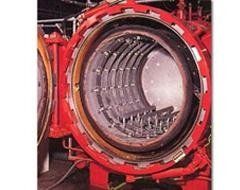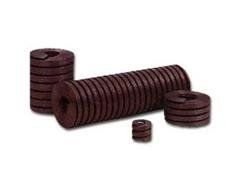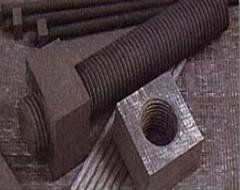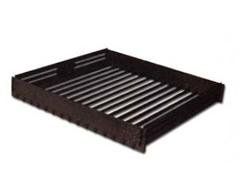Sitec Srl, through a well-established and efficient network of international partnerships, is involved in researching and sourcing the most effective solutions, offering a complete range of cutting-edge and technologically advanced products. Among these, it supplies reinforced carbon fibre products, both conventional and non-conventional composites, manufactured by Across Co. Ltd. From graphite felts to brazing tools, from heat treatment baskets to conveyor belts, conventional composites offer numerous advantages such as:
Excellent temperature resistance above 12OO°C
Low thermal expansion coefficient
High resistance to thermal shock
Improved abrasion resistance
High resistance combined with light weight
High modulus of elasticity
High thermal conductivity
High resistance to corrosion
Excellent electrical conductivity
Rate of temperature rise and fall
Improved fracture resistance
Alongside the advantageous characteristics, it is well known that composite materials also present several drawbacks, such as inconsistency in physical and mechanical properties, high cost, low bending resistance, and so forth.
To address these shortcomings, Across Co Ltd has developed and patented an innovative production system for composite materials, based on the preparation of preformed fibres with a powdered binder in a carbon matrix. The resulting composite is placed into thermoplastic sleeves, which are then woven like a mat and introduced into a hot press. This process yields a composite material that, unlike traditional production methods, offers exceptional uniformity and extremely high resistance.
PROPERTIES OF ACROSS COMPOSITE COMPARED TO CONVENTIONAL GRAPHITE
| AC 100 | AC 200 | AC 250 | GRAFITE | |
|---|---|---|---|---|
| Fibre/Volume Ratio (%) | 40 | 40 | 50 | === |
| Process Temperature (°C) | 2000 | 2000 | 2000 | 2000 |
| Density (g/cm³) | 1,7 | 1,7 | 1,7 | 1,7 |
| Flexural Strength (Kgf/mm²) | 8 | 15 | 55 | 4 |
| Flexural Strength (Kgf/mm²) | 8 | 10 | 24 | 8 |
| Charpy Resilience Value (Kgf/cm/cm²) | 10 | 13 | 53 | 2 |
| Thermal Expansion Relative to Length and Thickness (10⁻⁶/°C) | 2 === | 1,1- 8,4 | 0,6 - 8,2 | 4 - 4 |
| Thermal Conductivity Relative to Length and Thickness (Kcal/m hr °C) | 15 === | 30 - 11 | 59 - 9 | 100 - 100 |
| Specific Heat 20°C - 1200°C (cal/g °C) | 0,18 - 0,49 | 0,18 - 0,47 | 0,18 - 0,45 | 0,17- 0,17 |
| Shore Hardness | 75 | 81 | 85 | 40 |
| Volume Resistivity (Ω·cm) | 3200 | 2500 | 1700 | 1000 |
EFFECT OF HEAT ON RESISTANCE
Unlike ceramic materials and nickel alloys, which lose their resistance with increasing temperature, Across AC 250 fibres maintain their resistance even at temperatures exceeding 2000°C.
EFFECT OF HEAT ON FLEXURAL STRENGTH
The flexural strength, in relation to the load, remains unchanged even over long periods, without being affected by temperature.
Lining of hot chambers for vacuum furnaces
ButtonBrazing tools in AC 200 carbon fibre
ButtonLoad springs for heat treatment. The fibres follow the spiral.
ButtonTensioners and nuts
ButtonBasket for heat treatment, robust, lightweight, and highly durable
ButtonConveyor belt for use above 1200°C
ButtonHEAD OFFICE
Via Provenzali, 1
44042 Cento (FE)
OPERATIVE HEADQUARTERS
Via Giovanni Bastia, 3
40012 Calderara di Reno (BO)
CONTACT
VAT No. 01685020388












